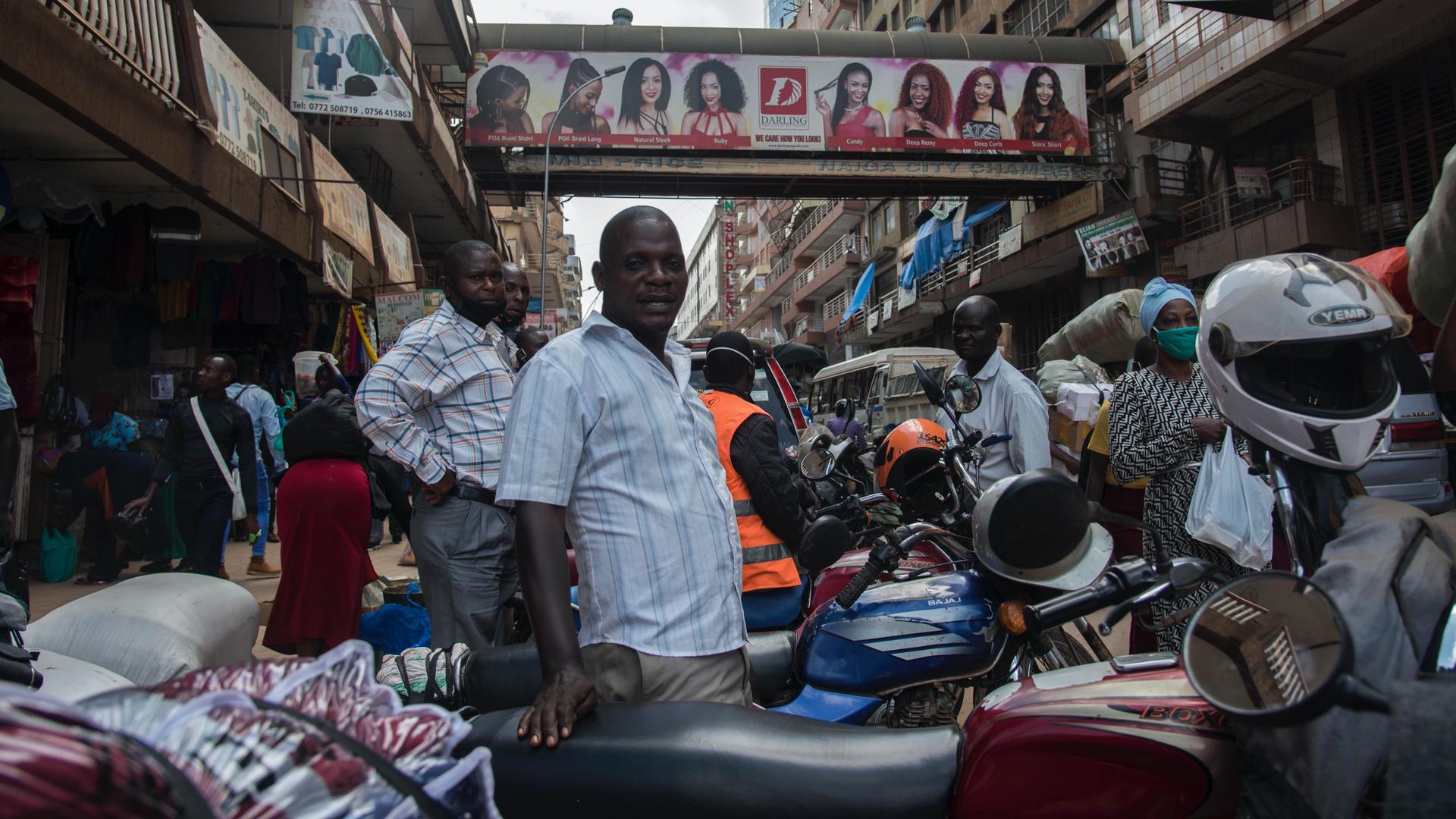After months under lockdown, Uganda is beginning to ease some of its strictest travel restrictions.
Last week, the government removed a ban on boda boda, or motorcycle taxis, a common form of transportation in Uganda. New health restrictions issued by the government may also help to regulate the boda boda industry.
Thousands of boda boda drivers have been out of work since March when the Ugandan government suspended most forms of public transportation in an effort to curb the spread of the coronavirus.
While Uganda began to allow other forms of public transportation to resume operations in June, that hadn’t extended to boda bodas, frustrating drivers and leading one group to sue the government.
Related: Ugandan farmers take on French oil giant in game-changer case
Asaph Mugisha never set out to drive a boda boda, but in recent years, it has helped him support his family.
But the coronavirus completely upended that.
“We never knew how long the lockdown would take,” said Mugisha who, without work, strictly budgeted his savings.
“We didn’t have money to buy food for breakfast, lunch and supper. So, we budgeted the money that we had so that we could just eat once in a day.
Now, Mugisha and other drivers are finally back on the road, but the landscape looks much different.
Before the coronavirus, Mugisha could earn as much as 70,000 Ugandan shillings on a good day (about $19). These days, he’s making a quarter of that.
The government’s new set of health regulations to minimize the spread of the coronavirus requires strict regulations and precautions between drivers and passengers.
Related: Africa must invest ‘in human capital’ to fight the coronavirus
“So, I put on my face mask. And helmet,” began Mugisha, noting that the helmet has a glass panel in the front to cover his eyes. Then comes the hand sanitizer, which boda boda drivers are now carrying.
“Before I start my trip, I have to first sanitize my customer,” explained Mugisha.
“And when I reach the destination of the journey, I also sanitize him. I also sanitize [myself]. Then, he gives money after sanitization,” he said.
But with some stores still closed due to COVID-19 restrictions, and many Ugandans out of work, there haven’t been many customers, says Mugisha.
Related: Mass arrests in Zimbabwe over coronavirus regulation violations
The new boda boda requirements have also extended to consumers. During a recent press conference, Information Minister Judith Nabakooba explained that boda boda passengers must register with their names and phone numbers.
“These details will help in following up should any of the contacts test for COVID-19,” said Nabakooba.
Drivers have begun recording passenger information in small books, but the new requirement has stirred up some concerns over privacy.
Apollo Mugasa, another boda boda driver in Kampala, says some of his customers have refused to share their information.
“They’re saying they want to keep their privacy with their telephone numbers,” said Mugasa, who typically picks up clients around the popular Acacia Mall.
Mugisha says his regular clients, however, don’t have a problem with the new mandate.
Abraham Anun, digital director at Capital Brand in Kampala, recently developed a new ride-hailing app called GoodBoda.
It’s one of many ride-hailing apps offered in Uganda these days. Others include Safe Boda and Ori Rides.
Anun suggests that getting people registered with these apps could be a solution to both the privacy and contact-tracing concerns because the information is stored in the app.
“Because the client has already registered with the app, and the rider is also registered with the app. So, all they have to do is link up,” he explained.
“It makes both parties feel more safe. And feel like their privacy is not being intruded upon,” said Anun, who expects his app to launch within the next month.
“Of course, there will be information in the system about who did the trip. So, tracking that will be easier,” he noted about contact tracing.
The Ugandan government seems to welcome the move toward digital ride-hailing apps and encourages drivers to register with them, which will likely boost the industry.
But drivers like Mugasa have their reservations.
In 2016, he joined a different ride-hailing app for boda boda drivers but later dropped out due to high fees and low wages.
According to Mugasa, some ride-hailing companies take a large cut of drivers’ profits and require drivers to pay for branded gear that distinguishes them from ordinary drivers.
“We had to pay 10,000 [Ugandan shillings] a week,” said Mugisha.
“The reflector jacket — they charge you. A helmet — they charge you. A phone — they charge you. There’s nothing that they give. But again they charge you 15% for every trip that you take.”
As the ride-hailing app industry has grown, this has been a tension point for both boda boda and regular taxi drivers who use ride-hailing apps in both Uganda and neighboring East African countries.
Now, with more options to choose from, Mugasa says he hopes to get a better deal.
“I will see which is suitable for me. The company which can listen to us as drivers, then I will join [that] one,” he said.
Overall, he supports the new changes for boda bodas and hopes they will help the industry become more organized.
